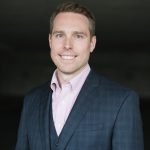“At one place, the start-up package may have more dollars but not infrastructure or personnel to support career development, where another offer may be better because of collaborators and core facilities,” Dr. Bridges explained. “It’s not the monetary amount so much as what the monetary amount will provide you with.”
To help land a faculty position, it is important to publish—a signature paper and at least one additional paper—said William Robinson, MD, VA Palo Alto Health Care System, Palo Alto, Calif., and associate professor at Stanford University School of Medicine in Stanford, Calif. He stresses the need to create a research niche, which establishes visibility and leadership, and to foster collaboration because “translational research takes a village.”
Jason Jungsik Song, MD, associate professor at Yonsei University, Korea (South), collaborated with other researchers on protein in coagulation and inflammation and to translate the mouse data on the mechanism of autoimmune disease into human disease. Dr. Song believes obtaining K08 funding is a team process. He obtained National Institutes of Health (NIH) K08 funding from the National Institute of Arthritis and Musculoskeletal and Skin Diseases (NIAMS) after a second submission. “It was a very painful process, but I learned a lot about research grant applications,” he said.
Veena Ranganath, MD, MS, assistant clinical professor at UCLA Rheumatology at the University of California, Los Angeles, who obtained NIH K23 funding from NIAMS, believes that working with a statistician early in the process can help determine whether a study proposal is feasible. Dr. Ranganath also believes having the support of a strong mentorship team is a necessity for success.
Fostering a synergistic relationship with a mentor (or mentors) is an essential ingredient for optimizing a research environment and launching an academic career, Dr. Robinson said. Another key ingredient is persistence. Rejection in academics is a near-daily occurrence, Dr. Robinson said. “You have to brush it off and soldier on. … Savor the successes when they come.”
In addition to learning from colleagues about research and academics, it can be helpful to learn time-management skills from those who do well at prioritizing. M. Elaine Husni, MD, MPH, department vice chair and director of the arthritis and musculoskeletal center at the orthopedic and rheumatologic institute at the Cleveland Clinic, suggests speaking with colleagues who are good time managers—not the ones who are at work until 8 p.m. every night, but those who leave at a reasonable hour, have kids, and are doing productive research—to learn tips for organization and prioritization. Establishing effective time-management skills can improve productivity and ultimately reduce (or eliminate) stress, she said.
